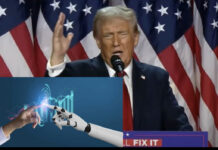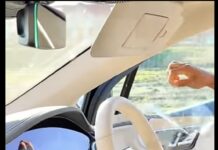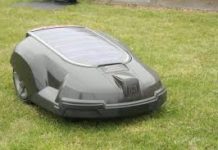The Paris Motor Show, one of the most anticipated events in the automotive world, has increasingly become a battleground for electric vehicles (EVs) as automakers shift their focus to sustainable, tech-rich, and affordable solutions. In 2024, the show which took place between October 14 and 20 highlighted a significant turning point in the industry as car manufacturers rolled out a wave of more affordable electric vehicles, packed with advanced technology, to meet the growing demand from environmentally-conscious consumers.
The Growing Demand for Affordable EVs
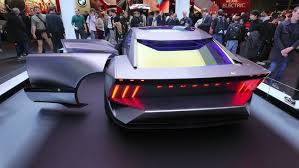
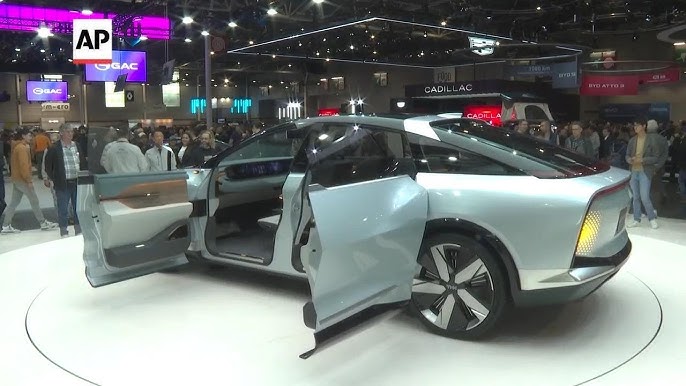
As governments around the world ramp up regulations on carbon emissions and announce plans to phase out internal combustion engines, the push for electrification has accelerated. Europe, in particular, has set ambitious targets, with many nations aiming to ban the sale of new petrol and diesel cars by the 2030s. This regulatory shift, combined with consumer demand for sustainable vehicles, has led to a surge in EV production.
However, one of the primary barriers to widespread EV adoption has been cost. Electric vehicles have historically been priced higher than their gasoline counterparts, largely due to the cost of battery technology. Automakers have now turned their attention to closing this price gap, and the 2024 Paris Motor Show showcased numerous examples of how they are achieving this.
Automakers Presenting Cheaper EV Models
At the Paris Motor Show, major car manufacturers including Renault, Volkswagen, and Stellantis, along with newcomers like BYD and Ora, presented a new range of EVs designed to appeal to the mass market.
- Renault unveiled its new Renault 5 Electric, a small, compact car positioned as an affordable option for urban drivers. Drawing inspiration from the iconic Renault 5 of the 1970s, the EV version combines retro design with cutting-edge technology. It is expected to have a starting price well below most EVs on the market, making it a highly competitive choice for city dwellers seeking cost-effective green mobility.
- Volkswagen, meanwhile, introduced its ID.2all concept car, a smaller and more affordable EV that is projected to cost less than €25,000. This model is part of Volkswagen’s broader strategy to bring electric mobility to the masses, following its successful ID.3 and ID.4 models. The ID.2all represents a clear commitment to expanding its lineup to include budget-friendly options while retaining the brand’s focus on innovation and performance.
- Stellantis, the parent company of brands like Fiat, Peugeot, and Citroën, showcased a range of compact EVs aimed at budget-conscious buyers. One standout was the Fiat Panda EV concept, a small, minimalist vehicle that offers practical features at a lower price point. Stellantis has made it clear that affordability is key to driving EV adoption, and it plans to introduce several models under €20,000 in the coming years.
A New Wave of Tech-Rich Features
While price was a major focus at the Paris Motor Show, automakers also emphasized the increasing importance of technology in EVs. Modern electric vehicles are not just about cutting emissions; they are also platforms for advanced technology that enhances the driving experience. As part of their strategy to attract buyers, automakers are equipping their cheaper EVs with a range of tech-rich features that were once reserved for premium models.
- Advanced Driver Assistance Systems (ADAS): Many of the new EV models on display came equipped with Level 2 autonomy, which includes features like adaptive cruise control, lane-keeping assistance, and automated parking. These systems make driving safer and more convenient, even for budget-friendly models.
- Infotainment and Connectivity: Carmakers are increasingly integrating sophisticated infotainment systems, with touchscreens, voice control, and wireless smartphone integration (such as Apple CarPlay and Android Auto). This technology is becoming standard in EVs, with even entry-level models offering digital instrument clusters, over-the-air (OTA) updates, and cloud-based services that enhance navigation and vehicle management.
- Battery and Charging Innovations: Several automakers also revealed improvements in battery technology that enable faster charging times and greater range. For instance, Volkswagen’s ID.2all features a battery that supports 10-minute fast charging, allowing for up to 150 kilometers of range, while BYD and other Chinese automakers are focusing on high-density batteries to maximize driving range without escalating costs.
- Sustainability and Recyclability: Along with technological advancements, automakers are increasingly focusing on the sustainability of materials used in their vehicles. Several EVs showcased at the Paris Motor Show highlighted the use of recycled materials for interior components, such as seat fabrics and dashboard trims, as well as more environmentally-friendly production methods aimed at reducing the overall carbon footprint of each car.
Chinese Automakers Shaking Up the European Market
One of the most notable trends at the Paris Motor Show was the strong presence of Chinese automakers such as BYD, Ora, and Nio, which are aggressively entering the European market with affordable EVs. These brands are positioning themselves as serious competitors by offering tech-rich vehicles at prices that undercut European manufacturers.
- BYD, already one of the largest electric vehicle manufacturers in the world, showcased a range of electric sedans and SUVs that offer long-range capabilities at lower prices than many European and American brands. With sleek designs and a focus on technology, BYD is aiming to attract both cost-conscious consumers and those seeking the latest in EV innovation.
- Ora, a subsidiary of Great Wall Motors, introduced the Ora Funky Cat, a small electric car designed to appeal to younger drivers. It features a retro-futuristic design and comes equipped with advanced infotainment and safety features, all at a price point that makes it one of the more accessible EVs on the market.
The Future of Affordable EVs
The Paris Motor Show 2024 underscored a significant shift in the automotive industry. As electric vehicles become more affordable and feature-packed, the barriers to adoption are steadily being removed. This new wave of budget-friendly EVs is likely to appeal to a broader range of consumers, particularly in urban areas where short-range, compact vehicles are in high demand.
In addition, with advancements in battery technology and the development of expansive charging infrastructure across Europe, the practicality of owning an electric vehicle continues to improve. As prices continue to drop and the technology matures, the EV market is poised for significant growth.
The next few years will be crucial for both established automakers and new entrants as they compete to capture market share in the growing EV sector. The Paris Motor Show has once again shown that the future of mobility is electric, and with automakers committed to making EVs more affordable, the shift to greener transportation is accelerating.
Conclusion
The 2024 Paris Motor Show was a clear reflection of the automotive industry’s direction: affordable, tech-rich electric vehicles that cater to a mass audience. The combination of lower prices, advanced features, and sustainability-driven innovations indicates that EVs are no longer just a premium product for the wealthy but are becoming a viable option for the everyday driver. As competition heats up, the electric vehicle revolution is moving into high gear, and consumers stand to benefit the most.














